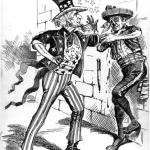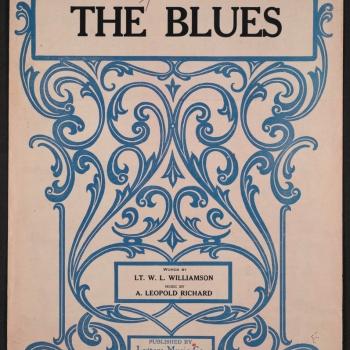
Source: Wikimedia
For all its motivating potential, or perhaps because of it, “freedom” is one of those slippery words. In Ninja Thyberg’s Pleasure (2022), there’s no doubt that Bella Cherry (Sofia Kappel) decides to move from Scandinavia to the US to act in porn of her own volition. She, like many a young person, may be deluded about the future, about what awaits her. But it’s her choice. No question there. But every experience from then on muddies the water. Bella will find success. She will come out on top. But this is a movie about the journey, about an industry, as much as it is about a single performer and the end that befalls her. This ain’t Pamela. The moral seems to be (perversely enough): freedom isn’t free. And not just in porn.
Upon her arrival, she has second thoughts. The clinical nature of the production, devoid of anything like eroticism, the fact that she’s on her knees, a man towering over her, a camera in her face—it’s overwhelming. She powers through and returns to the model house where her agency has put her up and where all the young women live in that early-20s squalor known to anyone who’s had roommates. Management tells her not to befriend the other girls, but she does anyway, especially Joy (Revika Anne Reustle), who offers pointers and breaks the unfortunate news: either Bella gets more extreme in what she’ll do on camera, or she’s doomed.
At this point, the film enters what in about any other movie would be its Victorian phase. Thyberg avoids simplistic tropes; at the same time, however, the movie remains realistic. Horrifying close-ups and POV shots underscore the pain Bella suffers in some of these scenes—it’s stuff out of the best psychological horror. When she considers leaving, the staff on one of these “rough” shoots is nice enough. It soon becomes clear, however, that their kindness is just another way to get her to finish what they’ve started. They offer a shoulder to cry on only to make it known it’s about the money for them. Flies, honey, vinegar. If she won’t continue, they’ll ruin her. Is she free to go? I guess in the same way Qing China was free to enter into unequal treaties or the Congolese were free to have Leopold as their king. When she complains to her agent, he says she asked for rough scenes (she’ll need them to move up in her career after all)—it’s her fault. So, she goes free agent; she hits rock bottom.
Her fall means two contradictory things: a renewed vigor and a commitment to do things even more difficult and painful (her comeback role relies, as one Black actor tells us early in the film, on a fundamentally racist premise). As if by sheer force of will, however, she gets to the top, signs with a slimy (but prestigious) agent, and ends up sitting with the VIPs at parties. In the process, she slowly finds her freedom slipping away, selling Joy out to an assailant, violating a former rival during a scene, and feeling totally alienated from the all star performers around her. To get to the top means not to rock the boat; she made it there by playing by the rules, and so she continues to. She is the classic victim of success, though I don’t think that’s exactly Thyberg’s point.
Unlike a lot of reviews, I would not call the film’s view of the porn industry complicated. It’s clearly negative. But not necessarily because it’s the porn industry. Rather, Pleasure asks us if raw ambition in any field can do anything but corrupt, if any but the craven can actually rise through the ranks in a contemporary profession. More than this, it shows us the trauma that can teach one to sit down and shut up; it relays how cowardice and self-loathing are produced in the successful, how the passionate and hopeful become the broken and the silent. In this sense, it’s not really a movie about porn. Pleasure is about exploitation, coercion, and (fundamentally) capital. It traffics in the world of HR, soft power, and subtle cues. You don’t need to have moved to LA to pursue a career in sex to know that feeling of surrendered liberty. And, if you can admit you know the feeling, well, you probably didn’t make it to the top.












